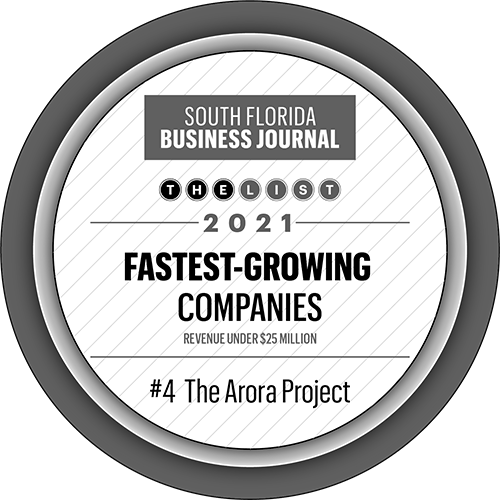While it’s true that reward- and donation-based crowdfunding experiences fraud at a much higher rate than equity-based crowdfunding, that doesn’t mean our industry doesn’t get hit with a number of fraudulent campaigns every year. Read on to find out more about the different types of scams you might come across and rules you should follow to avoid being scammed.

The crowdfunding industry has exploded all over the world in recent years, to the point where crowdfunding campaigns now raise billions of dollars across platforms. Unfortunately, as with all other industries where money and securities change hands, the crowdfunding industry has become a magnet for scammers trying to profit from illegitimate campaigns.
While it’s more typical to see fraudulent activity in the donation- and reward-based crowdfunding sector, fraudsters pose a huge risk to equity crowdfunding as well. Despite investment regulations set in place by the SEC that govern Reg A, A+, CF, and D, unaccredited investors can be less savvy and have less of an idea what they should be looking for when it comes to the warning signs of fraud.
But never fear! Here at Arora Project, we’re experts in the world of crowdfunding, and we’re ready to share our experience with anyone who might need it.
Common Types of Equity Crowdfunding Fraud
- Campaign Fraud: When a business acts in a way that misleads its investors—maliciously or not—about the nature, progress, and/or outcome of their business, product, or idea, this is considered campaign fraud.
- Misuse of Funds: This occurs when the campaign owner takes the money invested into their campaign and uses the money for personal use rather than spending the money for its intended purpose.
- Unauthorised Companies: Even though the SEC is adamant about all fundraisers following the proper registration process, there are still people who avoid registering which makes their raise illegal—regardless of whether the money invested is used legitimately.
- Cloned Companies: Copycats can set up investing websites using a legitimate company’s name, address, and other identifying information to lead potential investors to believe they are the real company, and then disappear with the funds raised.
- Fake Platforms: Scam platforms are those that imitate real investing sites and target inexperienced investors who don’t investigate a site before using it
Examples From The SEC
The SEC has become adept at discovering and prosecuting crowdfunding fraud. Typically, a fraudulent campaign or platform loses any licenses it has obtained, and must pay hefty fines in addition to any necessary criminal charges leveled against the perpetrators.
Because of the airtight regulations and restrictions imposed by the SEC, there are less instances of fraud in equity crowdfunding than other crowdfunding sectors—but they do happen. Here are just a few examples of equity-specific fraud via the SEC:
- Property Income Investors LLC and Larry B Brodman. After using unregistered fraudulent securities offerings to raise more than $9 million across 11 different companies under the guise of purchasing properties in South Florida to rent and sell, Brodman funnelled more than $2.3 million of that into private accounts.
- Transatlantic Real Estate/Nicole Birch; 420 Real Estate/Willard Jackson and Robert Schumake. Both of these startups were involved in real estate dealings for cannabis and hemp companies. TRE raised $1.02 million through Regulation CF, while 420 raised nearly $900,000. Neither company used the money raised for their operations; instead Birch funnelled money into her attorney practice and Jackson transferred money to two other companies. The SEC charged these three fraudsters with violating the anti-fraud and registration provisions of the Securities act, a class II federal felony. Proceedings are still pending.
- William C Skelley and Innovation Funding LLC. Skelley embezzled more than $1 million by giving his investors false information about the use of their funds and the number of projects Innovation Funding LLC had financed. He was ordered by a federal court to pay $2.32 million in restitution in March 2021.
- The Legacy Group. By taking advantage of loopholes in the real estate tax code, the executives behind the Legacy Group were able to sell fraudulent unregistered securities to more than 200 investors—most of whom were unaccredited. The securities were listed on a crowdfunding platform and marketed as an opportunity to invest in “flipping” residential properties with annual interest as high as 16%.
Rules You Should Follow to Avoid Getting Scammed
There are no guarantees in the equity crowdfunding industry that any investment will be safe or guaranteed to increase in value. Investing in startups is inherently risky! But there are steps you can take to verify the legitimacy of a campaign you’d like to invest in, and give yourself peace of mind.
- Is the offering page clear and concise? We don’t mean to sound biased, but many, if not most, truly legitimate equity crowdfunding campaign pages are written and designed by professionals—and you can tell! Is the flow of the page smooth and easy to read? Are the design elements professional looking and match the tone of the page? Is the overall page cohesive and easy to navigate? These are all good signs that it could be a legitimate campaign. You can also look at each campaign with the eye of a VC to see if the page covers problem, solution, traction, and other specific criteria of a good campaign.
- Have you researched the platform and feel comfortable with its adherence to regulations? New investing platforms are cropping up each and every day, and it’s hard to know which are legitimate and which aren’t. One simple way you can begin to verify the legitimacy of an investing platform is to Google them! While that does sound like a no-brainer, chances are if the platform doesn’t have a strong web presence or has negative reviews on other sites, you can safely assume you don’t want them to have access to your financial information.
Other ways include exploring their webpage. Is their copy free of spelling mistakes and grammatical errors? Do they have a blog and a social media presence? How about any award recognition? An “About Us” page with information about the company and team? Do all of the campaigns listed on the site lead to legitimate websites for real companies?
- Have you researched the company you’re wanting to invest in? Many times, a company will advertise their campaign on social media, run an ads campaign, or have a landing page on their official website that leads to the investment page. While it isn’t a red flag if they don’t, any of these signs can point to a legitimate campaign.
- Does the platform store your investment in an escrow account for safety? We cannot stress this enough: the platform on which you find the campaign you’d like to invest in should NEVER get their hands on your money. Instead, the money that you invest in should go straight into an escrow account for safekeeping. Legitimate investing sites will work directly with the owner of the campaign for payment of hosting fees that come out of the escrow account…not out of your wallet. An escrow account also ensures that if the fundraise fails, you get your money back in a timely fashion.
When in Doubt, Walk it Out
Unfortunately, there is no hard-and-fast rule that we can tell you to keep you from falling for a fraudulent campaign. However, even the most naive new investors will probably still have some intuition about which campaigns and platforms are fraudulent…and which aren’t. Generally, we think if it seems too good to be true, it probably is—and you should absolutely do your due diligence before ever investing your money.
If you can’t verify a company, platform, or campaign’s legitimacy without having to crawl down an internet wormhole, you should run. Legitimate campaigns don’t hide from potential investors and information about them and their raise should be easy to find.
Eventually, You Have to Take the Plunge
Being in the crowdfunding industry, we think that the opportunities found on legitimate crowdfunding sites and campaigns are second to none. We truly are in a new era of democratized investments where big-name VCs and angel investors aren’t the only ones who can get in on the ground floor of up-and-coming startups BEFORE they explode. But you have to be courageous! You can’t let the small risk of fraud keep you from trying. If you’ve done your due diligence and are ready to invest…just do it.
Fraud in our industry hurts us all, and we here at Arora Project have made it our mission as professional crowdfunders to be as transparent with our campaign partners as possible.
If you’re ready to crowdfund your next venture and you’re looking for a partner who will handle your raise without your potential investors questioning the legitimacy of your campaign, we’d love to have a conversation.








